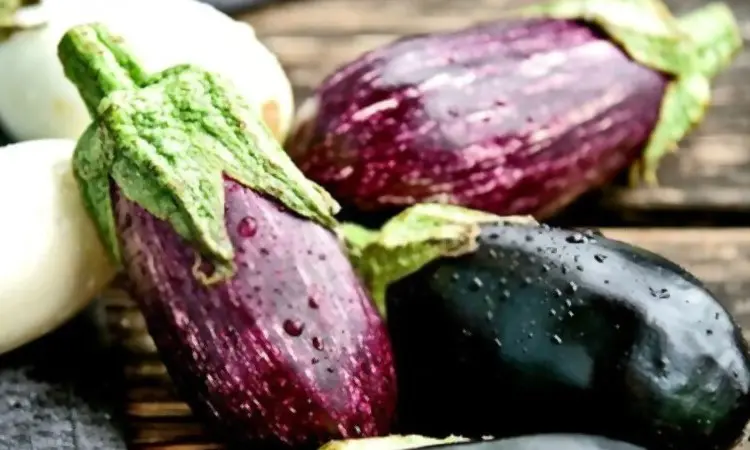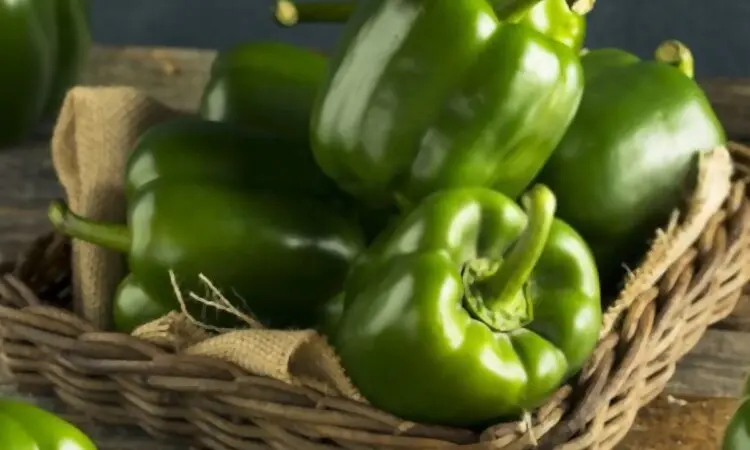The list of food restrictions that pregnant women deal with is endless. Your baby’s growth is related with what you eat. Hence, saying goodbye to a few foods deemed unsafe and practicing a little dose of caution is never harmful. Though many advise you to consume fruits and vegetables during pregnancy, there are a few vegetables to eat during pregnancy and a few vegetables to avoid during pregnancy.
Eating the right kind of vegetable during pregnancy can give your baby the desired nutrients, before and after birth. Though eating a balanced diet during pregnancy is important, some vegetables might be risky during pregnancy.
Here we discuss the best vegetables during pregnancy, as well as which vegetables are good to avoid.
What Vegetables Should Be Avoided During Pregnancy
Just like a few vegetables that pregnant women must consume during pregnancy owing to their health benefits, there are certain vegetables that pregnant women should preferably during their entire pregnancy as they might be harmful to the unborn. To ensure that the newborn gets the best nutrition even when they are inside the womb, a lot of care has to be taken.
Nutrients are important to help you be healthy before and during pregnancy. Nutrients like vitamins and minerals help your body stay healthy. While green vegetables such as spinach, are undoubtedly advantageous to a healthy pregnancy diet, there are few vegetables to avoid during pregnancy.
We have compiled a list of all the suggested vegetables to avoid during pregnancy so that you and your baby are both protected during this wonderful period.
Related Reading: Is It Safe To Eat Raw Vegetables During Pregnancy?
1. Eggplant/Brinjal

Brinjal is one of the most affordable and easily available vegetables in almost every Indian kitchen. It is loaded with many nutritional benefits and can be a healthy addition to your diet.
Calculate Due Date With LMP
Brinjal contains large amounts of phytohormones that help in treating premenstrual syndrome and amenorrhea. In such cases, brinjal works as a diuretic. It can stimulate menstruation when consumed daily which is not a good option for pregnant women1.
2. Aloe Vera
Though aloe vera has a lot of health benefits, consumption during pregnancy is not recommended medically. This is because aloe vera can induce womb contractions and preterm labor2 due to the presence of anthraquinones laxative3.
3. Drum stick
In general, drumsticks are considered safe for consumption during pregnancy when taken in small quantities. However, during pregnancy, it is recommended to avoid consumption to prevent complications.
Drumstick may act as an anti-fertility agent, which could lead to abortion. It also affects the process of implantation during pregnancy. Hence avoid having dishes made using drumsticks4.
Related Reading: How To Cope With Sweet Cravings During Pregnancy
4. Green sprouts
Despite having a good source of protein, experts recommend pregnant women avoid green sprouts as it contains harmful bacteria such as salmonella on it. Eating raw green sprouts can lead to infections like e-coli and much more.
These bacteria in the sprouts can cause illnesses that are quite dangerous for pregnant women, leading to stillbirth, miscarriage, premature birth, and other life-threatening infections in the newborn baby in some rare cases5.
5. Radish
Radish has many health benefits which make it one of the best foods for consumption. However, its diuretic properties can stimulate the production of urine. Also, the consumption of too much radish will lead to excess loss of water from our bodies and may lead to dehydration.
Pregnant women must refrain from eating radish as the bacteria present in it may cause infection or other diseases. Also, since it grows beneath the soil, it is exposed to many bacteria that can adversely affect the health of the growing baby6.
Related Reading: 11 Foods That Give You Energy While Pregnant
6. Mung beans
Though mung bean is a good source of protein and is a rich antioxidant, experts do not recommend its intake during pregnancy as its anti-nutrients and estrogen-like phytosterols could harm your body. During pregnancy, the woman is skeptical of many infections. The US FDA says anyone with a weakened immune system should avoid eating raw sprouts of any kind7.
7. Bitter gourd
Bitter gourd, if eaten for the first time, can cause cramps in the abdomen, gastritis, and other such stomach-related diseases. Since pregnancy isn’t a time to explore new foods, the best thing is to avoid it.
If you have a taste for it , avoid excessive consumption as it can cause stomach-related troubles such as diarrhea, and cramps in the abdomen and induce preterm labor8.
Also, bitter gourd contains alkaline components like resins, quinine, saponic glycosides, and medicine which can cause discomfort during pregnancy.
8. Ginger
Consumption of ginger in moderation is safe during pregnancy. However, heavy doses can lead to miscarriage or menstrual bleeding, which may be harmful to you and your developing baby. Experts advise against ginger consumption close to the delivery date, due to the increased risk of bleeding from its blood-thinning ability9.
9. French beans
Some of the varieties of beans can prove hazardous when eaten raw. These contain amino acids which could be harmful and toxic during pregnancy. However, when these vegetables are soaked, cleansed, and cooked, they are safe to consume10.
Related Reading: Cornflakes During Pregnancy- Safe Or Not
10. Raw potatoes
Potatoes contain starch which makes them hard to digest when eaten raw. Raw potatoes can also cause gastrointestinal problems like bloating11.
Also, due to a compound known as solanine, raw potatoes when stored for too long, develop green spots. It is not safe to consume such potatoes12.
11. Sweet potato
Though sweet potatoes are considered safe and beneficial during pregnancy due to their richness in vitamins A and C, and fiber, the outer layer of sweet potatoes, if uncooked, can lead to digestive-system-related issues like bloating and heartburn. It can also cause nausea13.
12. Alfalfa
Though alfalfa is considered a superfood during many phases of pregnancy, there are chances for the sprouts grown in stores to be contaminated leading to multiple bacteria outbreaks.
Eating contaminated sprouts could make you sick. According to the Food and Drug Administration (FDA) children, pregnant women, and older adults, with a compromised immune system must avoid alfalfa sprouts and supplemental products derived from alfalfa seeds.
What Are The Best Vegetables To Eat While Pregnant
Even though you might be eating a balanced diet during pregnancy which is worth all vitamins and minerals, there always exists the doubt you aren’t getting the required nutrients. When it comes to eating the best while pregnant, try to reach for foods that pack plenty of nutrients into just a few bites. This will help you reap the benefits of eating vegetables during pregnancy.
During pregnancy, it is advised to the mother to have 2.5 to 3 cups (about 500 grams) of vegetables in a day. Though there are supplements for vitamins and minerals, vegetables cannot be supplemented by pills owing to their fiber content.
Here we give you a list of veggies that will keep your tummy happy, and provide your little one with the nutrients they need to grow.
1. Beetroot
Beetroot is one nutritional vegetable making it a smart inclusion during pregnancy. Loaded with vitamins and minerals, beet can be prepared in several delicious ways. Beets are high in fiber and help you keep constipation at bay. Beetroot must make way in your pregnancy diet.
2. Broccoli and dark leafy greens
Broccoli and dark leafy greens like spinach, and kale are superfoods loaded with vitamins and nutrients, including vitamins A, C, and K. They are also a good source of calcium, iron, and folate. Being a rich source of antioxidants and fiber, they easily ease constipation.
Related Reading: 18 Home Remedies For Constipation During Pregnancy
3 Bell peppers/Capsicum

Bell peppers are a good source of vitamin C, vitamin A, and folate making them a nutritious food during pregnancy. This superfood supports the baby’s growth and improves iron absorption. Out of all color variants, red bell pepper is the most nutrient.
4. Carrots
Carrots are a good source of vitamin B6 and vitamin K, and minerals like potassium, and phosphorus. It helps to regulate blood sugar levels and keeps gestational diabetes at bay. As an excellent source of vitamin C, carrots help enhance the immunity of the mother. Having carrots during pregnancy is a wise choice.
5. Pumpkin
With the goodness of beta carotene and vitamin C, eating pumpkin during pregnancy reduces the risk of contracting diarrhea and eczema – the common ailments during pregnancy. Apart from being a rich source of fiber, it has the goodness of potassium and antioxidants that help regulate blood pressure.
6. Green peas
Including green peas in your pregnancy diet helps to prevent neural tube defects which are generally caused by the deficiency of vitamin B9. Grand een peas are a good source of Vitamin C, K, and A, fiber, folic acid, B complex, and magnesium.
7. Tomatoes
Tomatoes are a common vegetable in Indian cuisine. They are rich in vitamins C, K, biotin, and fiber. Tomatoes offer health benefits such as improving immunity, reducing the risk of hemorrhage, and managing gestational diabetes. However, it is advised not to exceed your tomato consumption as it can cause severe birth defects.
Related Reading: Is It Safe To Eat Sweet Corn During Pregnancy?
Vegetables That Must Be Avoided During The First Trimester Of Pregnancy
The first trimester is the first three months of pregnancy when your body undergoes a lot of changes. This time of pregnancy can be hard for moms-to-be. Since this is a crucial time for your baby’s growth, certain types of foods can be harmful to you and can affect the growth of your little one.
Listed below are a few vegetables that must be avoided particularly during the first trimester of pregnancy.
1. Raw sprouts
Raw sprouts may contain bacteria which might not be easy to wash. Hence it’s better to avoid them to prevent infection. Check if your foods such as sandwiches contain raw sprouts before your intake. Wash thoroughly and cook the sprouts to eliminate any infection-causing germs.
Listed below are a few raw sprouts to avoid.
- Alfalfa
- Mung beans
- Radish
- Clover
2. Unwashed vegetables
Vegetables are an essential part of your diet. You must wash them well before use. Unwashed vegetables may contain dirt and germs such as toxoplasmosis, which can harm you and your baby.
Also, pre-packed salads can be contaminated with listeria. Hence refrain from consuming them.
3. Eggplant
Experts say that eggplants are loaded with essential minerals, vitamins, and nutrients. However, it contains large amounts of phytohormones and helps in treating premenstrual syndrome and amenorrhea. Also, toxoplasmosis, a compound that gets absorbed in eggplants under the soil, when consumed by expecting women, gets absorbed by the baby and it increases the risk of premature delivery14.
4. Cabbage
Leafy vegetables are generally one of the foods that you should eat plenty of when you are pregnant. Pregnant women as stated above should avoid consuming raw vegetables.
Raw cabbage may contain microbes that could result in food-borne diseases such as listeria infections. These can have adverse outcomes like miscarriage, preterm delivery, and even stillbirth15.
Conclusion
Having a healthy diet is vital during pregnancy. However, a few vegetables can have a detrimental effect on a pregnant person’s health and the eventual health of their baby. It is always best to seek advice from your doctor before you could incorporate any changes to your pregnancy diet.


